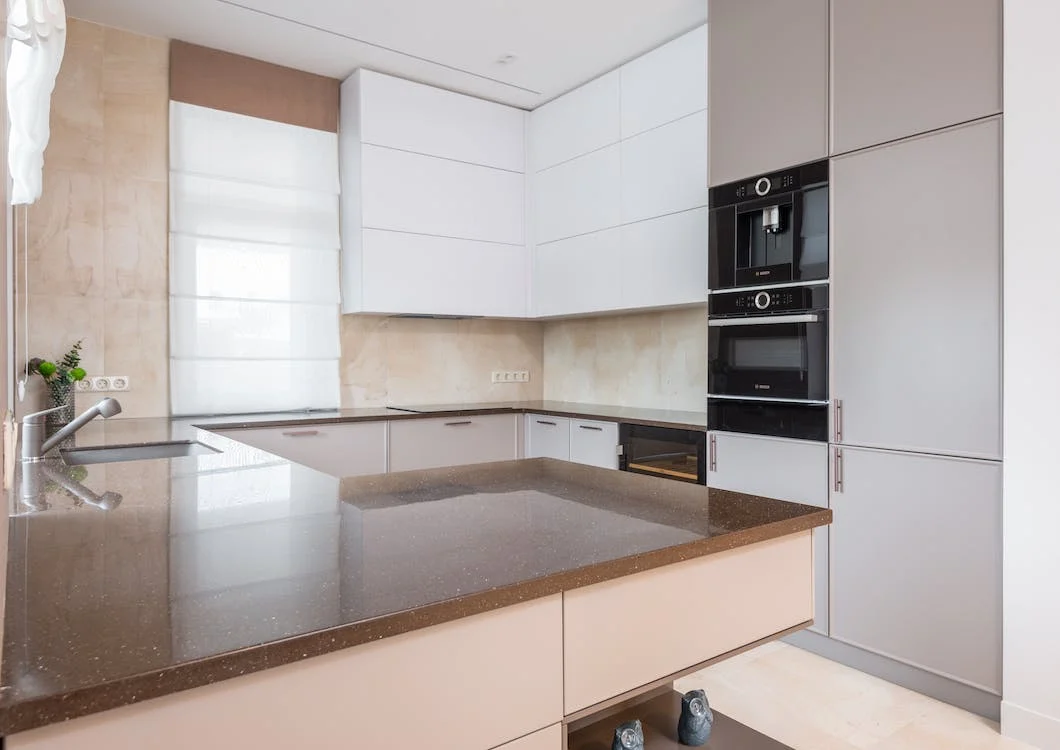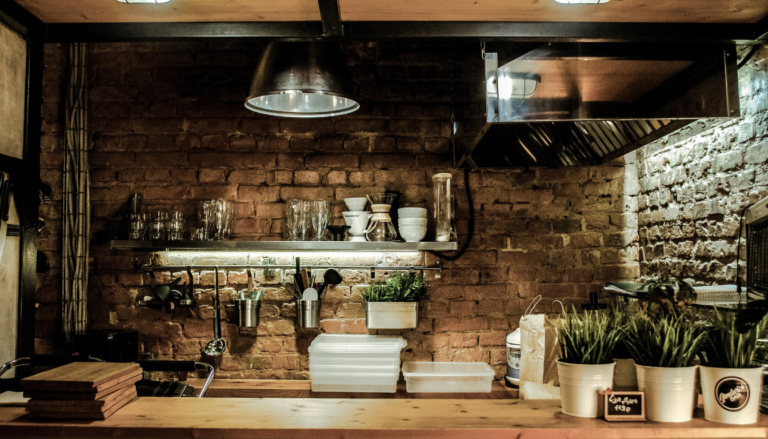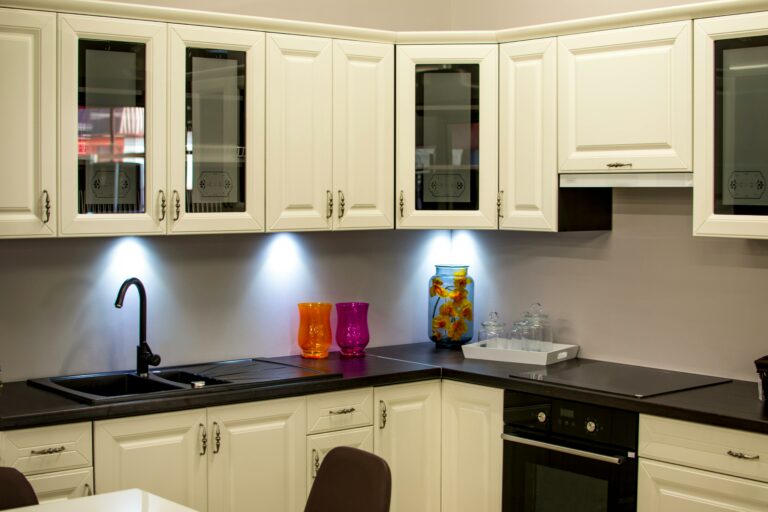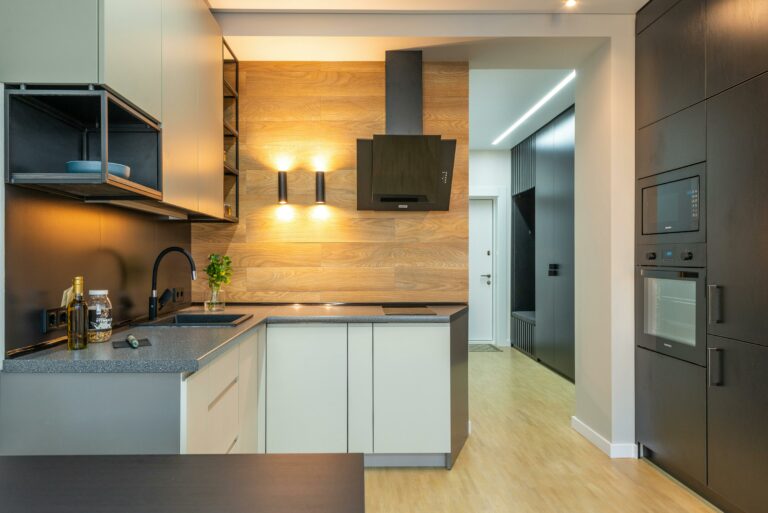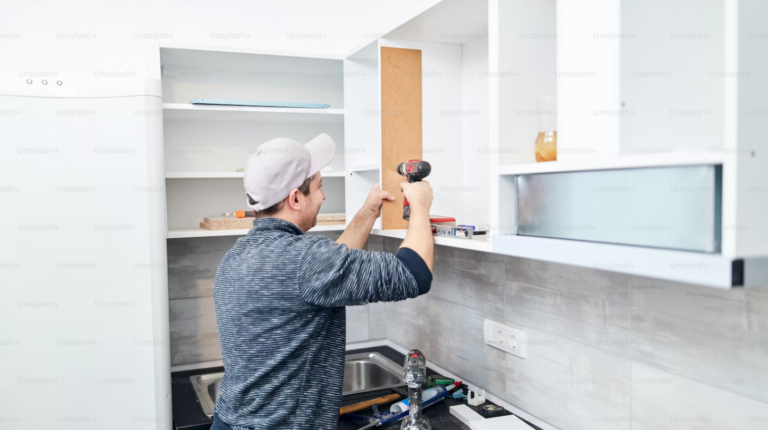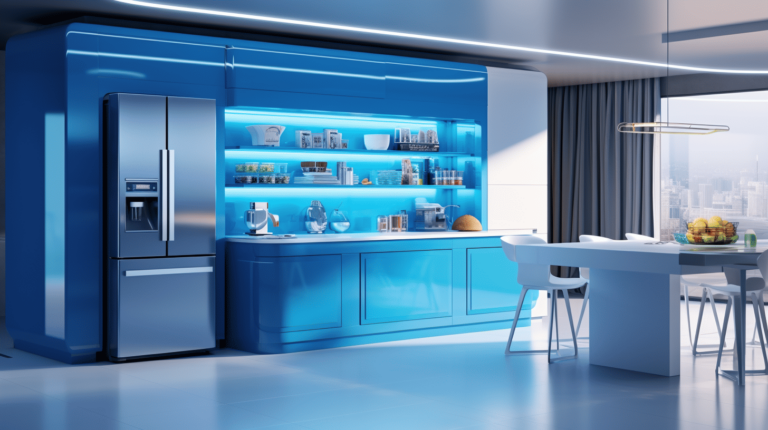Choosing the Right Countertop for Your Kitchen : A Comprehensive Guide in 2024
Welcome to our comprehensive guide on choosing the right countertop for your kitchen! The countertop is an essential element of any kitchen, as it serves both functional and aesthetic purposes. Whether you’re remodeling your kitchen or building a new one, selecting the right countertop material is crucial to ensure it meets your needs and complements your overall kitchen design.
Table of Contents
- 1 Right Countertop for Your Kitchen
- 2 Factors to Consider
- 3 Types of Countertop Materials
- 4 Comparison of Countertop Materials
- 5 Determining the Right Material for Your Needs
- 6 Pros and Cons of Different Countertop Materials
- 7 Choosing a Reliable Countertop Installer
- 8 Maintaining Your Countertop
- 9 Conclusion
- 10 Frequently Asked Questions
Right Countertop for Your Kitchen

A lot goes into choosing the perfect countertop material, from considering your budget and aesthetic preferences to evaluating durability, ease of maintenance, and even the resale value of your home. With so many options available, it can be overwhelming to make the right choice. But fear not, we are here to help!
In this guide, we’ll walk you through the various factors you should consider when choosing a countertop material. We’ll explore the different types of materials available, their pros and cons, and how they stack up against each other in terms of appearance, durability, heat resistance, stain resistance, maintenance, and cost. We’ll also provide tips on how to determine the right material for your specific needs, and give you some advice on finding a reliable countertop installer.
So whether you’re looking for a luxurious marble countertop, a durable and low-maintenance quartz surface, or a budget-friendly laminate option, this comprehensive guide will equip you with all the information you need to make an informed decision. Let’s dive in!
Factors to Consider
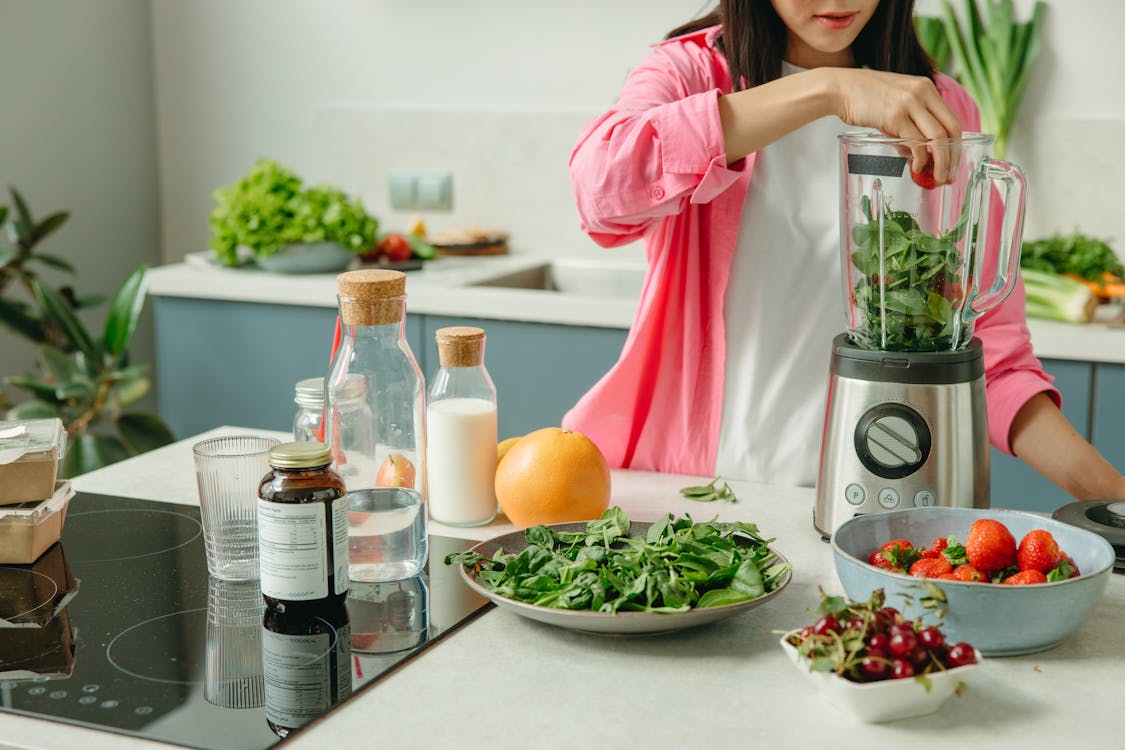
When it comes to choosing the right countertop for your kitchen, there are several factors that you should take into consideration. Each factor can have a significant impact on your overall satisfaction with your countertops. Here are some important factors to consider:
- Budget: Determine how much you are willing to spend on your countertops. Different materials come with different price tags, so it’s important to establish a budget before you start shopping.
- Aesthetic Appeal: Consider the overall style and aesthetic of your kitchen. Choose a countertop material that complements the design and enhances the overall look of the space.
- Durability: Think about how durable you need your countertops to be. Some materials are more resistant to scratches, stains, and heat than others, so consider your lifestyle and how you will be using your kitchen.
- Maintenance: Assess how much time and effort you are willing to put into maintaining your countertops. Some materials require regular sealing and special care, while others are more low-maintenance.
- Resale Value: If you plan on selling your home in the future, think about the potential resale value of your countertops. Certain materials, like granite and quartz, are highly sought after and can increase the value of your home.
By considering these factors, you can narrow down your options and make an informed decision that suits your needs and preferences. Each factor will guide you as you explore different countertop materials and their pros and cons. Whether you prioritize style, durability, or cost, taking these factors into account will help you choose the perfect countertop for your kitchen.
Types of Countertop Materials
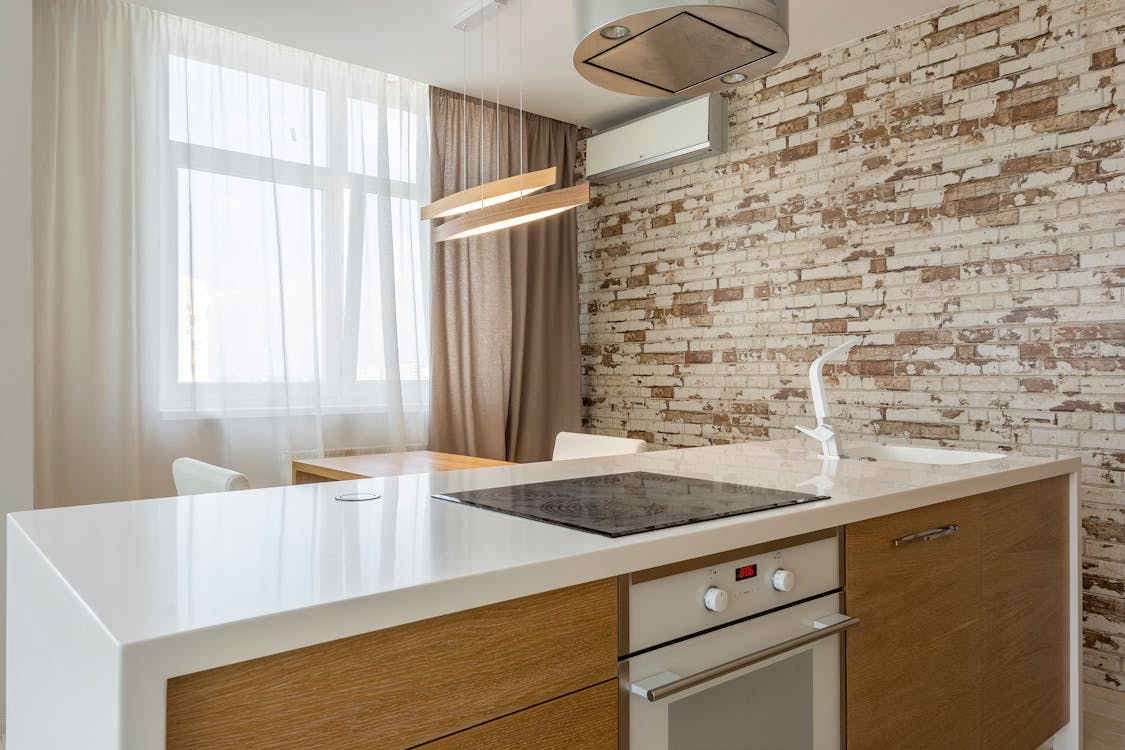
When it comes to selecting the perfect countertop for your kitchen, there are a wide variety of materials to choose from. Each material offers its own unique characteristics, so it’s important to consider factors like durability, maintenance, and aesthetic appeal. Let’s explore some of the most popular types of countertop materials available:
- Granite: Granite is a natural stone that adds a touch of elegance to any kitchen. It is known for its durability and resistance to scratches and heat. Each slab of granite has a unique pattern, making your countertop one-of-a-kind.
- Quartz: Quartz countertops are engineered using a mix of natural quartz and resin. This material is highly durable, non-porous, and resistant to stains. It is available in a wide range of colors and patterns, offering a modern and sleek look to your kitchen.
- Marble: Marble countertops are renowned for their luxurious appearance and timeless beauty. However, they do require regular sealing and maintenance to protect against staining and etching. Marble is more susceptible to scratches and heat damage, so it may not be suitable for high-traffic kitchens.
- Laminate: Laminate countertops are an affordable and versatile option. They are made from layers of paper or fabric impregnated with resin and bonded to particleboard. Laminate offers a wide range of colors and patterns, including designs that mimic natural stone and wood.
- Solid Surface: Solid surface countertops are made from a blend of acrylic and polyester materials. They are non-porous, seamless, and easy to clean. Solid surface countertops can be customized to fit any kitchen design and are available in various colors and textures.
- Tile: Tile countertops allow for endless customization options. You can choose from a variety of materials such as ceramic, porcelain, or natural stone. Tile countertops are durable and heat-resistant, but the grout lines can be prone to staining if not properly sealed and maintained.
- Concrete: Concrete countertops offer a modern and industrial look to your kitchen. They are highly durable and heat-resistant. Concrete can be customized with various colors, finishes, and textures to match your kitchen design.
- Butcher Block: Butcher block countertops are made from thick strips of wood that are glued together. They provide a warm and rustic look to your kitchen. While durable and heat-resistant, butcher block countertops require regular sealing and maintenance to protect against moisture and bacteria.
- Stainless Steel: Stainless steel countertops are commonly used in commercial kitchens and offer a sleek and contemporary look. They are highly durable, heat-resistant, and easy to clean. However, they can be prone to scratches and fingerprints.
Each type of countertop material has its own pros and cons, so it’s important to consider your needs and preferences when making a decision. Keep in mind factors like cost, maintenance, durability, and the overall design of your kitchen. By understanding the characteristics of each material, you can choose the countertop that best suits your lifestyle and enhances the beauty of your kitchen.
Comparison of Countertop Materials

When it comes to choosing a countertop material for your kitchen, there are plenty of options to consider. Each material offers its own set of advantages and disadvantages, so it’s important to weigh them against your specific needs and preferences. To help you make an informed decision, let’s compare the most popular countertop materials based on important factors like appearance, durability, heat resistance, stain resistance, maintenance, and cost.
Appearance
- Granite: Known for its natural beauty and unique patterns, granite countertops add a touch of elegance to any kitchen.
- Quartz: Offering a wide range of colors and patterns, quartz countertops can mimic the look of natural stone or have a more uniform appearance.
- Marble: With its classic and timeless beauty, marble countertops are often chosen for their luxurious aesthetic appeal.
- Laminate: Available in a variety of colors and designs, laminate countertops offer endless options for customization.
- Solid Surface: Offering a seamless and uniform appearance, solid surface countertops can be made to resemble natural stone or have a contemporary look.
- Tile: Tile countertops provide a multitude of design possibilities with different shapes, colors, and patterns.
- Concrete: Known for its industrial and modern appeal, concrete countertops can be customized to fit any style.
- Butcher Block: With its warm and natural look, butcher block countertops add a rustic charm to the kitchen.
- Stainless Steel: Known for its sleek and contemporary look, stainless steel countertops are popular in modern and industrial kitchen designs.
Durability
- Granite: Considered one of the most durable countertop materials, granite is resistant to scratches, heat, and stains.
- Quartz: Engineered to be extremely durable, quartz countertops are highly resistant to scratches, heat, and stains.
- Marble: While marble is a beautiful natural stone, it is softer and more prone to scratches and stains compared to granite and quartz.
- Laminate: Although laminate countertops are resistant to stains and heat, they can be easily scratched or chipped.
- Solid Surface: Solid surface countertops are non-porous and resistant to stains, but they can be susceptible to scratches and burns.
- Tile: Tile countertops are durable, but the grout lines can be prone to staining and cracking if not properly maintained.
- Concrete: Known for its durability, concrete countertops can withstand heat and scratches, but they may develop hairline cracks over time.
- Butcher Block: While butcher block countertops are resilient and can be sanded to remove scratches, they require regular maintenance and can be damaged by moisture.
- Stainless Steel: Stainless steel countertops are highly durable, resistant to heat and stains, and easy to clean.
Heat Resistance
- Granite: Known for its heat-resistant properties, granite can withstand high temperatures without being damaged.
- Quartz: Quartz countertops are also heat-resistant and can handle hot pots and pans placed directly on the surface.
- Marble: Marble is not as heat-resistant as granite or quartz, and it is recommended to use trivets or hot pads to protect the surface.
- Laminate: Laminate countertops are not heat-resistant and can be damaged by hot pans or dishes.
- Solid Surface: Solid surface countertops are heat-resistant to a certain extent, but it is still advisable to use trivets or hot pads.
- Tile: Tile countertops are heat-resistant, but the grout lines may be susceptible to damage from extreme heat or rapid temperature changes.
- Concrete: Concrete countertops are heat-resistant, but it’s best to use trivets or hot pads to protect the surface.
- Butcher Block: Butcher block countertops should not be used as a cutting surface for hot items, as they can be damaged by heat.
- Stainless Steel: Stainless steel countertops are highly resistant to heat and can handle hot pots and pans without being damaged.
Stain Resistance
- Granite: Sealed granite countertops are highly resistant to stains, but it’s still important to wipe up spills promptly.
- Quartz: Quartz countertops are non-porous and resistant to stains, making them easy to clean and maintain.
- Marble: Marble is more susceptible to staining compared to granite and quartz, so it’s essential to seal the surface and clean up spills immediately.
- Laminate: Laminate countertops are generally stain-resistant, but harsh chemicals or abrasive cleaners can cause discoloration.
- Solid Surface: Solid surface countertops are non-porous and resistant to stains, making them easy to clean.
- Tile: Tile countertops can be prone to staining, especially in the grout lines, if spills are not promptly cleaned.
- Concrete: Concrete countertops should be sealed to prevent staining, and spills should be cleaned up promptly to avoid discoloration.
- Butcher Block: Butcher block countertops can be susceptible to staining, particularly from acidic liquids, so regular oiling is necessary to maintain the surface.
- Stainless Steel: Stainless steel countertops are resistant to most stains, but they can develop water spots or fingerprints if not properly cleaned.
Maintenance
- Granite: Granite countertops require regular sealing to maintain their appearance and protect against stains.
- Quartz: Quartz countertops require minimal maintenance, as they are non-porous and do not require sealing.
- Marble: Marble countertops require regular sealing and proper care to avoid stains and etching from acidic substances.
- Laminate: Laminate countertops are easy to maintain and only require regular cleaning with mild soap and water.
- Solid Surface: Solid surface countertops are low maintenance and can be easily cleaned with mild soap and water.
- Tile: Tile countertops require regular cleaning of the grout lines and occasional resealing to prevent staining.
- Concrete: Concrete countertops require regular sealing and waxing to maintain their appearance and protect against stains.
- Butcher Block: Butcher block countertops require regular oiling to prevent drying out and cracking, and they should be kept dry to avoid warping.
- Stainless Steel: Stainless steel countertops are easy to clean and maintain, requiring only regular wiping with a soft cloth and mild detergent.
Cost
The cost of countertops can vary greatly depending on the material, quality, and size of your kitchen. Here’s a rough estimate of the cost per square foot for each material:
- Granite: $40 – $100+
- Quartz: $50 – $120+
- Marble: $50 – $150+
- Laminate: $20 – $50
- Solid Surface: $40 – $80
- Tile: $10 – $80
- Concrete: $70 – $150
- Butcher Block: $40 – $100
- Stainless Steel: $80 – $150
It’s worth noting that these prices are only averages, and the actual cost can vary depending on factors such as the quality of the material, the complexity of the installation, and the region you live in.
By comparing the different countertop materials based on appearance, durability, heat resistance, stain resistance, maintenance, and cost, you can make an informed decision about which material is best suited for your kitchen. Remember to consider your personal preferences, budget, and lifestyle when making your final choice. Happy countertop shopping!
Also Read: Designing a Farmhouse Kitchen : Rustic Ideas for a Cozy Space in 2024.
Determining the Right Material for Your Needs
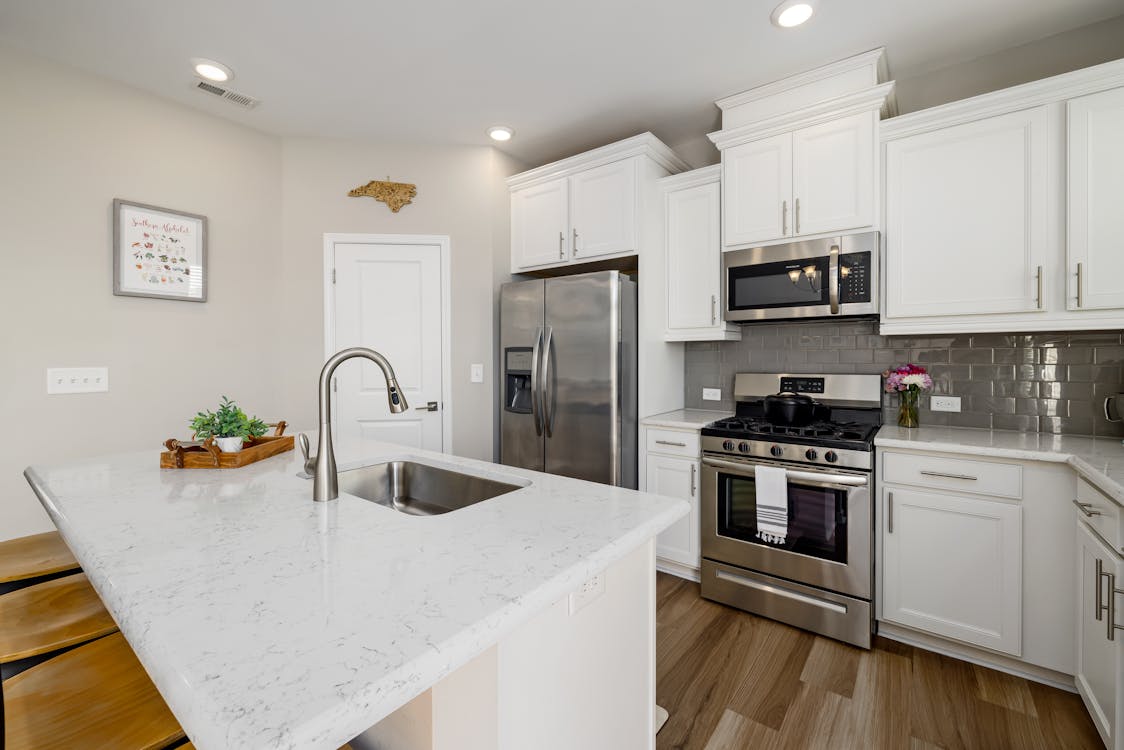
When it comes to choosing the right countertop for your kitchen, there are several factors to consider. Each kitchen is unique, and what works for one may not necessarily work for another. To ensure you make the best decision, you need to take into account your usage and lifestyle, kitchen design, budget constraints, and maintenance preferences. Let’s dive deeper into each of these factors:
Usage and Lifestyle
Think about how often you use your kitchen and the type of activities that take place there. Are you an avid cook who spends hours preparing meals? Do you have young children who may be prone to spills and accidents? Understanding your usage patterns and lifestyle will help you select a countertop material that can withstand your daily activities. For example, if you’re a busy home chef, you may want to prioritize durability and heat resistance.
Kitchen Design
Consider the overall style and aesthetic of your kitchen. You want your countertop to complement the existing design elements and create a cohesive look. Some materials, like granite and marble, can add a touch of elegance and luxury to a space, while others, like laminate and solid surface, offer a more modern and sleek appearance. Take into account the color scheme, cabinet finishes, and flooring to ensure your countertop choice enhances the overall visual appeal of your kitchen.
Budget Constraints
Your budget plays a significant role in determining the type of countertop material you can afford. It’s important to establish a realistic budget before you start shopping around. Keep in mind that while some materials may have a higher upfront cost, they may require less maintenance and have a longer lifespan, making them a more cost-effective choice in the long run. Take the time to research different materials and compare their costs to find the best option within your budget.
Maintenance Preferences
Consider how much time and effort you’re willing to invest in maintaining your countertop. Some materials require regular sealing, while others are more low-maintenance. If you lead a busy lifestyle or prefer minimal upkeep, opting for a material like quartz or solid surface may be a better fit. On the other hand, if you enjoy the natural patina that develops over time, materials like marble or butcher block may be more suitable.
By carefully considering these factors, you’ll be able to determine the right countertop material that ticks all the boxes for your needs. Remember, it’s not about choosing the most expensive or trendy option; it’s about finding a material that aligns with your lifestyle, design preferences, and budget constraints.
“The kitchen really is the castle itself. This is where we spend our happiest moments and where we find the joy of being a family.” – Mario Batali
Pros and Cons of Different Countertop Materials

Choosing the right countertop material for your kitchen is an important decision, as it not only affects the overall aesthetics of your space but also plays a vital role in functionality and durability. With a multitude of options available in the market, it can be overwhelming to narrow down the choices. To help you make an informed decision, let’s explore the pros and cons of different countertop materials.
Granite
- Pros:
- Beautiful and natural appearance.
- Highly heat-resistant.
- Scratch-resistant.
- Requires minimal maintenance.
- Adds value to your home.
- Cons:
- Expensive compared to other materials.
- Requires periodic sealing to avoid staining.
Quartz
- Pros:
- Wide range of colors and patterns.
- Non-porous, making it highly resistant to stains.
- Low maintenance and easy to clean.
- Highly durable and resistant to scratches.
- Does not require sealing.
- Cons:
- Can be more expensive than other materials.
- Not as heat-resistant as granite.
Marble
- Pros:
- Luxurious and elegant appearance.
- Excellent heat resistance.
- Naturally stays cool, which makes it ideal for baking.
- Adds value to your home.
- Cons:
- Requires regular sealing to protect against staining.
- Not as scratch-resistant as granite or quartz.
- Can be easily etched and damaged by acidic substances.
Laminate
- Pros:
- Affordable and budget-friendly.
- Wide variety of colors and patterns.
- Easy to clean and maintain.
- Resistant to stains and heat to a certain extent.
- Cons:
- Not as durable as other materials.
- Can get damaged by sharp objects and hot pans.
- Difficult to repair if it gets scratched or chipped.
Solid Surface
- Pros:
- Seamless and smooth surface.
- Can be customized to your desired shape and size.
- Non-porous, making it resistant to stains and bacteria.
- Can be repaired if it gets scratched or damaged.
- Cons:
- Less heat-resistant compared to other materials.
- Not as scratch-resistant as granite or quartz.
Tile
- Pros:
- Affordable and budget-friendly.
- Wide variety of colors and patterns.
- Easy to clean and maintain.
- Can be easily repaired if a tile gets damaged.
- Cons:
- Grout lines can be difficult to clean.
- Can crack or chip under heavy impact.
- Not as heat-resistant as other materials.
Concrete
- Pros:
- Customizable in terms of color, shape, and size.
- Durable and resistant to scratches.
- Heat and stain-resistant with proper sealing.
- Can be used in contemporary and industrial-style kitchens.
- Cons:
- Requires sealing to prevent staining.
- Can develop hairline cracks over time.
- Heavy and may require additional structural support.
Butcher Block
- Pros:
- Warm and natural appearance.
- Suitable for cutting and chopping directly on the surface.
- Can be sanded and refinished to remove scratches.
- Adds warmth and character to your kitchen.
- Cons:
- Requires regular oiling to prevent drying and cracking.
- Not heat-resistant, so hot pans can damage the surface.
- Prone to water damage if not properly sealed.
Stainless Steel
- Pros:
- Sleek and modern appearance.
- Resistant to heat, stains, and bacteria.
- Easy to clean and maintain.
- Can be custom-made to fit your space.
- Cons:
- Can show scratches and fingerprints easily.
- Can dent over time.
- May require additional support due to its weight.
It’s important to keep in mind that the pros and cons may vary depending on your individual needs, preferences, and the specific brand or quality of the countertop material. Consider aspects such as your budget, desired aesthetic, durability, maintenance requirements, and the overall function of your kitchen when making your decision.
By weighing the pros and cons of different countertop materials, you can find the perfect balance between style, functionality, and longevity that suits your kitchen and personal taste.
Choosing a Reliable Countertop Installer

When it comes to choosing the right countertop for your kitchen, selecting the material is just the first step. The next important decision is to find a reliable countertop installer who can ensure a seamless installation process. After all, even the most high-quality material won’t look its best if it’s improperly installed. To help you navigate this process, here are some key tips for choosing a reliable countertop installer:
Researching Local Installers
Start by researching and creating a list of local countertop installers in your area. Ask for recommendations from friends, family, or neighbors who have recently had their countertops installed. You can also check online directories or review platforms to find reputable installers near you.
Checking for Certification and Experience
Once you have a list of potential installers, it’s important to check their certifications and experience. Look for installers who are certified by the manufacturer of the countertop material you’ve chosen. This ensures that they have the necessary skills and expertise to handle your specific material.
Furthermore, inquire about their experience in installing countertops. A countertop installer with years of experience is more likely to be familiar with different installation methods and can handle any challenges that may arise during the process.
Reading Customer Reviews
Customer reviews can provide valuable insight into the quality of work and customer satisfaction of an installer. Take the time to read reviews on trusted platforms like Google, Yelp, or the installers’ own websites. Look for installers who have consistently positive reviews and a track record of delivering excellent results.
Obtaining Multiple Quotes
To ensure you’re getting a fair price, it’s always a good idea to obtain multiple quotes from different installers. This will give you an idea of the average cost for the installation and help you compare the services offered by each installer.
When obtaining quotes, make sure to provide the same specifications and details to each installer, so you’re comparing apples to apples. Additionally, don’t be swayed solely by the lowest price; consider the installer’s reputation, experience, and the quality of their previous work.
Remember, choosing a reliable countertop installer is crucial to the success of your kitchen renovation project. By doing thorough research, checking certifications and experience, reading customer reviews, and obtaining multiple quotes, you can make an informed decision and ensure a smooth and flawless installation process.
Now that you have chosen the right countertop material and found a reliable installer, it’s essential to know how to properly maintain your countertop to keep it looking beautiful for years to come. Let’s explore some tips for maintaining your countertop.
Maintaining Your Countertop

Once you’ve invested in a beautiful countertop for your kitchen, it’s important to keep it looking its best. Proper maintenance can help prolong the lifespan of your countertop material and ensure it continues to enhance the overall aesthetic appeal of your kitchen. Here are some tips on how to maintain your countertop:
Cleaning Tips
- Regularly clean your countertop using a gentle, pH-neutral cleaner that is suitable for the specific material. Avoid using abrasive cleaners or scrub brushes, as they can cause scratches or damage.
- Wipe up spills and stains as soon as possible to prevent them from seeping into the surface. Use a soft cloth or sponge and mild soap to clean up any messes.
- For stubborn stains, you can create a paste using baking soda and water. Apply the paste to the stain, let it sit for a few minutes, and then gently scrub the area with a soft cloth or sponge.
- Avoid using harsh chemicals, such as bleach or ammonia, as they can damage certain countertop materials and strip away their protective sealant.
Preventing Damage
- Use cutting boards and trivets to protect your countertop from scratches and heat damage. Avoid placing hot pots, pans, or appliances directly onto the surface, as extreme heat can cause cracks or discoloration.
- Use coasters or placemats under glasses and mugs to prevent water rings from forming on your countertop. This is especially important for porous materials like marble or butcher block.
- Be cautious when handling heavy or sharp objects on your countertop. Dropping heavy items or using knives directly on the surface can cause chips or scratches.
- Consider using silicone mats or pads under small appliances, such as blenders or coffee makers, to prevent them from sliding and potentially damaging the countertop.
Repairing Minor Issues
- For minor scratches or chips in solid surface or laminate countertops, you can use a repair kit specifically designed for the material. Follow the instructions provided to fill in the damaged area and blend it seamlessly with the surrounding surface.
- If your countertop has a stain that won’t come out with regular cleaning, you may need to use a specialized stain remover or contact a professional to assist with stain removal.
- For natural stone countertops like granite or marble, it’s best to consult a professional for any repairs or restoration work to ensure the integrity of the stone is maintained.
By following these maintenance tips, you can keep your countertop in excellent condition for years to come. Remember to always refer to the manufacturer’s guidelines and recommendations for your specific countertop material to ensure proper care. So, go ahead and enjoy your beautifully maintained countertop while creating delicious meals in your kitchen!
Also Read: How to Choose the Perfect Flooring for Your Kitchen in 2024.
Conclusion
In conclusion, choosing the right countertop for your kitchen is an important decision that should not be taken lightly. It is crucial to consider factors such as your budget, aesthetic preferences, durability, maintenance requirements, and resale value when making this choice.
By carefully assessing these factors and understanding the characteristics of different countertop materials, you can make an informed decision that meets your needs and enhances the overall look and functionality of your kitchen.
Remember, granite countertops are a popular choice for their natural beauty and durability, while quartz countertops offer a wide range of colors and designs with low maintenance requirements. Marble countertops exude elegance but may require more maintenance and caution. Laminate countertops are affordable and come in various designs, making them a budget-friendly option.
Solid surface countertops are versatile and easy to maintain, while tile countertops offer endless design possibilities but may be prone to cracking. Concrete countertops provide a contemporary and customizable look, but they require sealing and can be prone to staining. Butcher block countertops offer warmth and a natural feel but require regular sealing and maintenance. Stainless steel countertops are hygienic and durable but may scratch easily.
When choosing a countertop installer, take the time to research local professionals, check for certifications and experience, read customer reviews, and obtain multiple quotes to ensure you choose a reliable and skilled installer who can bring your vision to life.
Once your countertop is installed, proper maintenance is key to keeping it in top condition. Regular cleaning, preventing damage by using cutting boards and trivets, and addressing minor issues promptly will help extend the lifespan of your countertop and keep it looking pristine.
To get access to more articles related to kitchen, read Minimalist Kitchen Design in 2024 : Streamlined Cooking Space. Happy Designing!!
Ultimately, by considering all these factors and taking proper care of your countertop, you can enjoy a beautiful and functional kitchen for years to come. So take your time, do your research, and choose the countertop that best suits your needs and personal style. Happy kitchen remodeling!
Frequently Asked Questions
- What are the different types of kitchen countertops available?
There are several types of kitchen countertops available, including granite, quartz, marble, butcher block, laminate, concrete, and stainless steel. - Which countertop material is the most durable?
Granite and quartz are considered the most durable countertop materials. They are highly resistant to scratches, heat, and stains. - Are marble countertops suitable for kitchen use?
Marble countertops can be used in kitchens, but they require more maintenance and care compared to other materials. They are prone to staining and etching from acidic substances. - What is the average lifespan of different countertop materials?
The average lifespan of different countertop materials varies. Granite and quartz can last for several decades, while laminate countertops typically last around 10-15 years. Concrete and stainless steel countertops can last a lifetime with proper care. - How do I choose the right color and style for my kitchen countertop?
When choosing the color and style of your kitchen countertop, consider the overall theme and design of your kitchen. Take into account the color of cabinets, backsplash, and flooring. It’s recommended to bring samples or consult with a professional to ensure a cohesive look.

